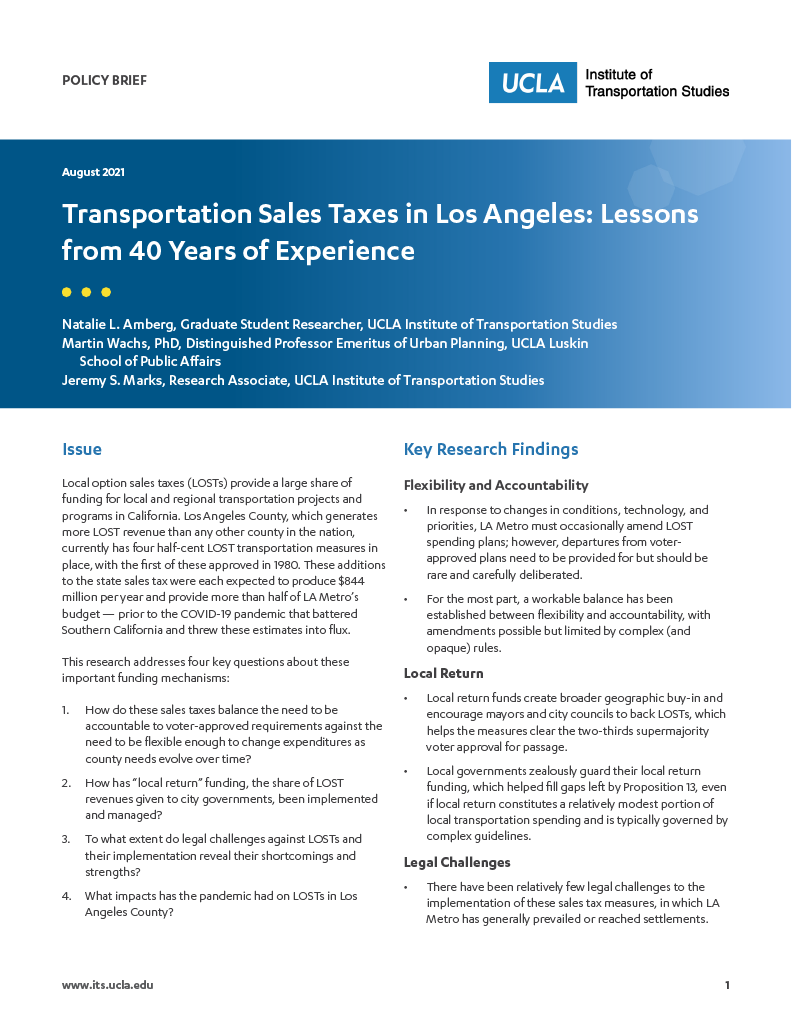Date: August 16, 2021
Author(s): Martin Wachs, Natalie L. Amberg; Jeremy S. Marks
Abstract
Local option sales taxes (LOSTs) provide a large share of funding for local and regional transportation projects and programs in California. Los Angeles County, which generates more LOST revenue than any other county in the nation, currently has four half-cent LOST transportation measures in place, with the first of these approved in 1980. These additions to the state sales tax were each expected to produce $844 million per year and provide more than half of LA Metro’s budget — prior to the COVID-19 pandemic that battered Southern California and threw these estimates into flux. This research addresses four key questions about these important funding mechanisms: 1) How do these sales taxes balance the need to be accountable to voter-approved requirements against the need to be flexible enough to change expenditures as county needs evolve over time? 2) How has “local return” funding, the share of LOST revenues given to city governments, been implemented and managed? 3) To what extent do legal challenges against LOSTs and their implementation reveal their shortcomings and strengths? 4) What impacts has the pandemic had on LOSTs in Los Angeles County?
About the Project
This is the second study of voter-approved transportation sales taxes in Los Angeles County performed by the UCLA Institute of Transportation Studies with support from the Haynes Foundation. The earlier study examined the history of the four half cent sales taxes enacted by voters in Los Angeles County between 1980 and 2016. The current study looked in depth at four issues raised but not addressed in the first one. We report on the extent to which the “local return” provisions of the four measures fund transportation programs and projects in the cities and unincorporated areas of the county. We also explored tradeoffs between accountability to the voters through audits and taxpayer advisory committees in comparison with the county’s flexibility to change program elements through amendments when conditions change. Accountability to the voters was enhanced in the later sales tax measures but amendment procedures have been used to respond to changing needs in the county. We examined lawsuits brought against Metro regarding implementation of the sales taxes and found that there have been rather few. The COVID-19 pandemic struck while the study was underway and in response the report also explores the impacts of the pandemic on transportation sales tax revenues and program expenditures. The transportation sales taxes through the end of year 2020 have been the most important and resilient LA Metro funding sources during the pandemic. Sales tax revenue declined but far less than did federal and state sources of finance and revenues from fares paid by passengers.


